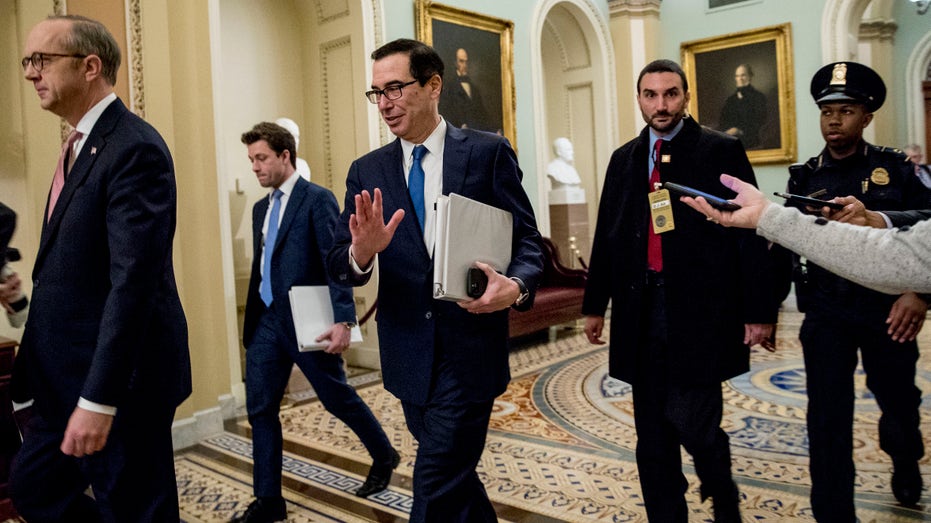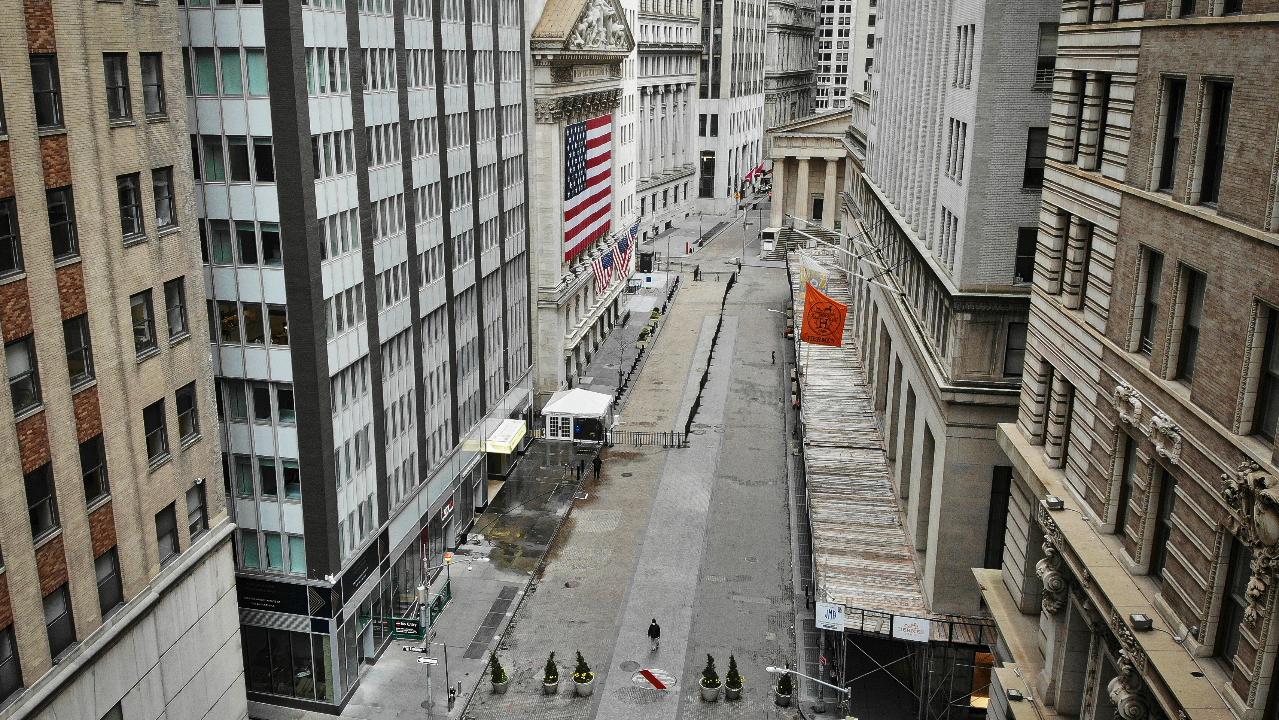Stock futures gain ground as Congress moves closer to a stimulus deal
Wall Street and some other stock markets have lost nearly one-third of their value over the past month
U.S. equity futures are pointing to a higher open when Wall Street begins trading on Tuesday as congressional and White House officials emerged from grueling negotiations at the Capitol over the $2 trillion coronavirus rescue package saying they expected to reach a deal Tuesday.
This comes after the Federal Reserve promised support to the struggling economy.
The major futures indexes are indicating a gain of more than 5 percent or around 900 Dow points.
The Fed promised to buy as many Treasurys and other assets as needed to keep financial markets functioning.
GET FOX BUSINESS ON THE GO BY CLICKING HERE
That came as Wall Street fell 3 percent after Congress failed to approve an economic support package. It would send checks to U.S. households and offer support for small businesses and the hard-hit travel industry, but Democrats say it favors companies too heavily at the expense of workers and public health.
In Asia, Japan's Nikkei rose 7 percent, the Hang Seng in Hong Kong was 4.4 percent higher and China's Shanghai Composite rose 2.3 percent.
In Europe, London's FTSE added 4.3 percent, Germany's DAX rose 6.5 percent and France's CAC was 4.9 percent higher.
The Fed's promise goes beyond the $700 billion in purchases announced last week.
The central bank said it will buy a wide range of investments, including corporate bonds for the first time, to improve trading in markets that help home buyers purchase houses, state and local governments borrow and businesses to get enough short-term cash to make payroll.

Treasury Secretary Steven Mnuchin, third from left, and White House Legislative Affairs Director Eric Ueland, left, walk to a meeting with Senate Minority Leader Sen. Chuck Schumer of N.Y. in his office on Capitol Hill, Monday, March 23, 2020, in Was
As Congress was locked in stalemate, the number of known infections worldwide jumped past 380,000. After just a few weeks, the United States has more than 46,000 cases and more than 600 deaths.
Also Monday, trading on the New York Stock Exchange went all-electronic for the first time after the trading floor was temporarily closed as a precaution. The exchange announced the move last week after two employees tested positive for the virus. The number of floor traders had dwindled sharply in recent years as more trading become electronic.
Wall Street and some other stock markets have lost nearly one-third of their value over the past month as business shutdowns spread and airlines, retailers and other industries suffer rising losses.
Economists increasingly say a recession seems inevitable. Analysts are slashing their forecasts for upcoming corporate profits. Forecasters say they cannot project how deep the downturn might be or how long it will last.
Professional traders say investors need to see a decline in numbers of new infections before markets can find a bottom.
Congress debated through the weekend on the rescue plan, but White House officials and congressional leaders are struggling to finalize it. Democrats blocked a vote to advance the package Monday. They want to steer more of the assistance to public health and workers.
Even if the two sides find a compromise, Congress may need to go through more rounds of similar negotiations if the outbreak isn't brought under control.
| Ticker | Security | Last | Change | Change % |
|---|---|---|---|---|
| I:DJI | DOW JONES AVERAGES | 50314.03 | +178.16 | +0.36% |
| SP500 | S&P 500 | 6973.09 | +8.27 | +0.12% |
| I:COMP | NASDAQ COMPOSITE INDEX | 23259.025708 | +20.36 | +0.09% |
On Wall Street, the benchmark S&P 500 fell 2.9 percent in another day of sudden swings. It was down as much as 4.9 percent and as little as 0.2 percent earlier in the day.
The Dow Jones Industrial Average fell 3 percent. The Nasdaq, which is dominated by technology companies, lost only 0.3 percent as tech shares held up better than the rest of the market.
CLICK HERE TO READ MORE ON FOX BUSINESS
In energy markets, benchmark U.S. crude gained $1.44 to $24.80 per barrel in electronic trading on the New York Mercantile Exchange. The contract lost $2.59 the previous session to close at $22.63. Brent crude, used to price international oils, added $1.20 to $28.21 per barrel in London. It lost $1.49 the previous session to $26.98.
The Associated Press contributed to this article.




















